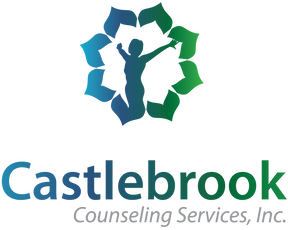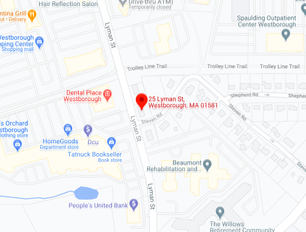20th Annual National Educational Alliance for Borderline Personality Disorder (NEABPD) Conference5/18/2025
20th Annual National Educational Alliance for Borderline Personality Disorder (NEABPD) ConferenceOn May 3rd, several Castlebrook clinicians attended the NEABPD annual conference held at Yale. This conference is unique in that it brings together researchers, providers, clinicians, clients, and family members to address common themes in the treatment of Borderline Personality Disorder (BPD). This year’s conference focused on the topic of access to treatment for individuals with BPD, and the supports offered to their loved ones as well.
After welcoming remarks from conference chairs, Dr. Suzanne Decker provided information to attendees about how research on psychotherapies is conducted, with the goal of educating consumers and clients about how to be selective about various treatment options being offered in the community. She discussed ways clients and their families can search for information on different treatments and how different levels of research studies, including meta-analyses (larger studies that combine a multitude of individual studies to find common outcomes), and randomized controlled trials (where participants are randomly assigned to treatment arms to compare outcomes to see if treatment is effective) are the best indicators of treatment efficacy. Additionally, she also encouraged people to explore clinicians’ training, experience, and expertise to match a client’s values, culture, and preferences. After setting this stage, Dr. Decker provided information on research done with Veterans struggling with emotion dysregulation, specifically utilizing Dialectical Behavior Therapy (DBT) and while the outcomes are positive, there are many barriers to Veterans being able to access this treatment, including staff training, the limited staff availability to provide such a complex and nuanced treatment effectively, and limited buy-in from administrators who might deem DBT to be too costly to provide. Dr. Shireen Rizvi provided the Keynote Presentation on the evidence behind the DBT Skills component of DBT treatment, and how it improves behavioral and emotional outcomes. (To read more about all of the components of DBT Treatment, read this blog post by Kerrie Toole, LICSW.) Dr. Rizvi described how her research was impacted by COVID and in wanting to support individuals seeking treatment but could not access it due to the pandemic, and how her team created videos of several DBT Skills that are accessible to the public on YouTube, and you can find them here. Dr. Rizvi also presented on barriers to accessing DBT treatment including availability of the treatment (and how there are now only 557 DBT-Linehan Board Certified Clinicians in the world), cost (as most DBT providers do not accept insurance), time (as DBT is typically a one-year treatment protocol with services 2-3 times per week, and often can take longer than this), and cultural factors (as DBT was not originally developed with cultural differences in mind). Dr. Rizvi provided research on ways to reduce these barriers, including by incorporating trainees in treatment provision, reducing the length of time in DBT treatment, and reducing the “dose” of DBT depending on a client’s severity of symptoms. A panel of providers including Dr. Jesse Finkelstein, Dr. Kiki Fehling, and representatives from Family Connections and Emotions Matter shared ways that clinicians can increase dissemination of DBT through the use of video conferencing and social media to broaden access to skillful living. Dr. Sarah Fineberg presented information on how individuals with BPD are often undertreated due to lack of appropriate and effective resources, and yet overmedicated by prescribers due to intensity of symptoms. She reviewed how to date, medications have little to no effect on BPD symptom severity, and there are no medications that are FDA approved or recommended. However, because BPD symptoms are often debilitating, clients will be prescribed a multitude of medications to address emotional dysregulation, impulsivity, depression, anxiety, and how even anti-psychotic medications are prescribed. Dr. Fineberg shared research on how people with BPD are often overprescribed medications, for example 40% of people with BPD are prescribed three or more medications, even in the absence of any other diagnosis. Dr. Fineberg presented different ways prescribers can work with patients with BPD to reduce overprescribing while still addressing symptoms and assisting them with accessing treatments. Dr. Maggie Davis presented on different treatment approaches to BPD, including traditional psychotherapy, DBT, Mentalization-Based Therapy, Schema Focused Therapy, Transference Focused Therapy, Dynamic Deconstructive Psychotherapy, Good Psychiatric Management, and Systems Training for Emotional Predictability and Problem Solving. Dr. Davis shared information on how each treatment addresses BPD symptoms, and the limitations of each. Saadia Ali, Esq., MBA and Abbey Chesley shared their lived experiences with being diagnosed with Borderline Personality Disorder, the struggles they went through, and how treatment has helped them to build skills to regulate emotions and improve relationships and sense of self. This year’s NEABPD conference provided us with inspiration on how to increase access to life changing treatments, and ways to advocate for more resources and coverage to allow us to continue to provide DBT to our community. We look forward to next year’s conference! |
Archives
May 2025
Categories |
Mission Statement
Castlebrook Counseling Services, Inc. is a group of private practice clinicians with a shared goal of strengthening our community by providing therapy and clinical support designed for children, adults, and families to successfully meet life’s challenges.
 RSS Feed
RSS Feed

